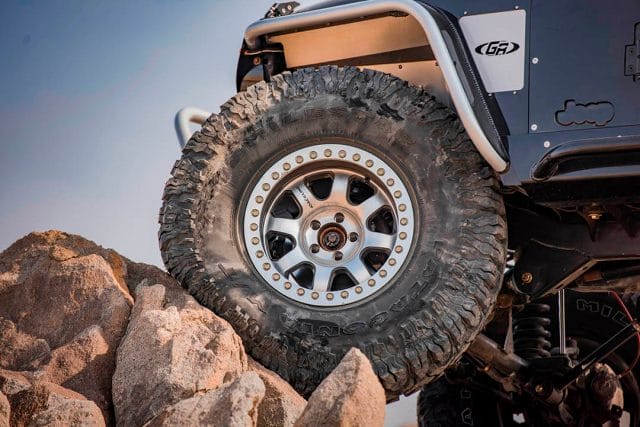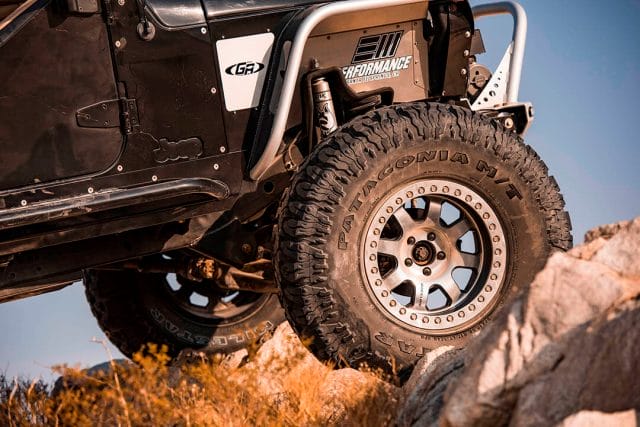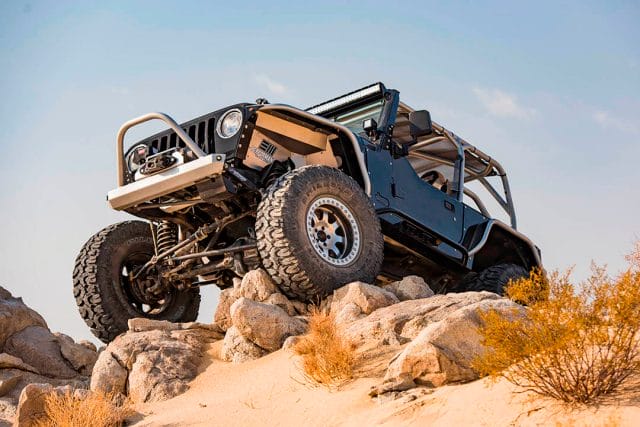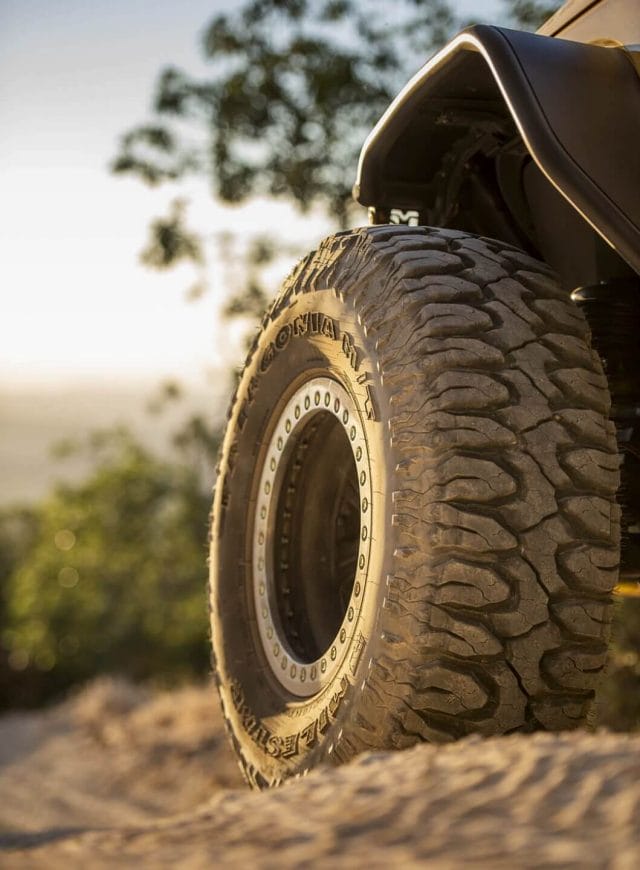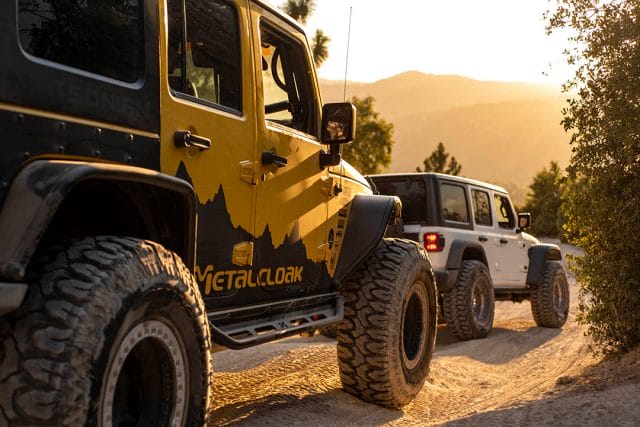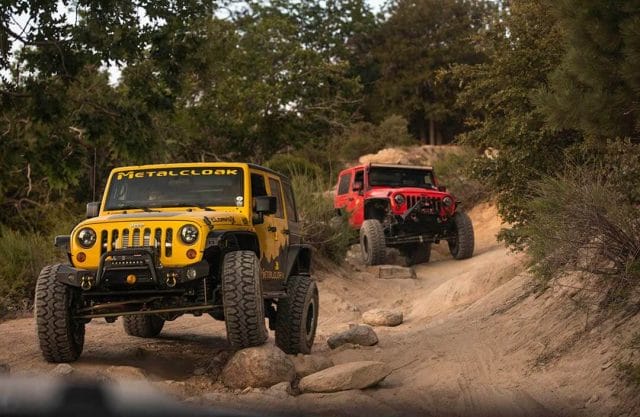Go into any current forum or social media group for Jeeps and 4x4s and you will find the most frequently asked question is “How big of a tire can I fit on my *insert 4×4 here*?” The question is posed so frequently that the query is “stickied” to the top of the forum page with countless replies. “You can fit 35 inch tires if you have…” “37 inch tireswork, but only if you’ve done…” “You need tons in order to run 40 inch tires…” (“Tons” is shorthand for 1-ton axles sourced from a pickup). They’ve all been asked.
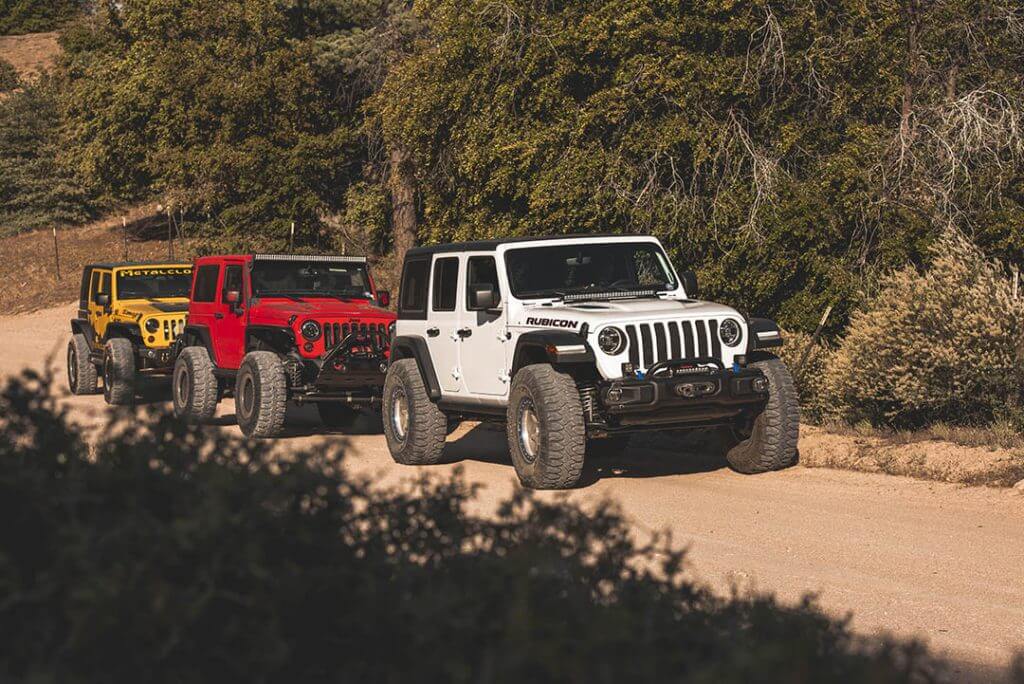
Tires (from left): 37 inch, 37 inch, and 38 inch Milestar Patagonia M/Ts
These seemingly universal 4×4 questions have been answered in their entirety, which we won’t get into here. The Jeep community has seen the 37×12.50R17 become the ubiquitous size on any new Jeep. Go back just over a decade and 37s were the extreme size tire to have and only a handful of brands to choose from. 33s and 35s were BIG, but 37s meant you were serious! So how did this desire for ever-larger tires come to be so common and why is there such a jump in size going from 37 inch tires to 40 inch tires with no choice in between?
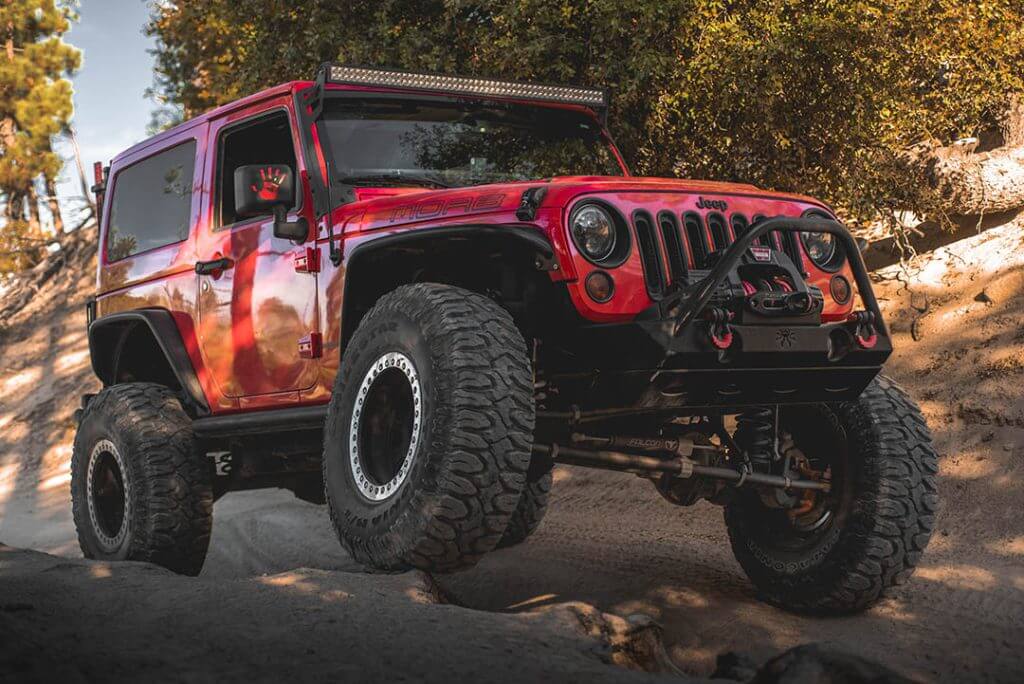
In today’s tire world, nearly every tire manufacturer has an All-Terrain (A/T) and a Mud-Terrain (M/T) in a 33, 35, or 37 inch tire that fits on a 17 inch rim. These sizes have become a standard upgrade for several reasons. First is 4×4 vehicles are bigger than ever before with auto manufacturers adding extra space, seats, and cargo capacity. Second, with the added space and creature comforts comes the weight.
“…33s and 35s were BIG, but 37s meant you were serious!…”
Everything gets bigger from the drivetrain, axles, brakes, steering to handle the extra weight and still be a capable vehicle. This transition to more capacity and capability was lead by growing popularity in outdoor activities amongst families. With the vehicles and their components getting bigger and adding capability, enthusiasts took to modifying them with greater earnest and in greater numbers. One of the easiest ways to add capability is by gaining clearance through a larger tire size.
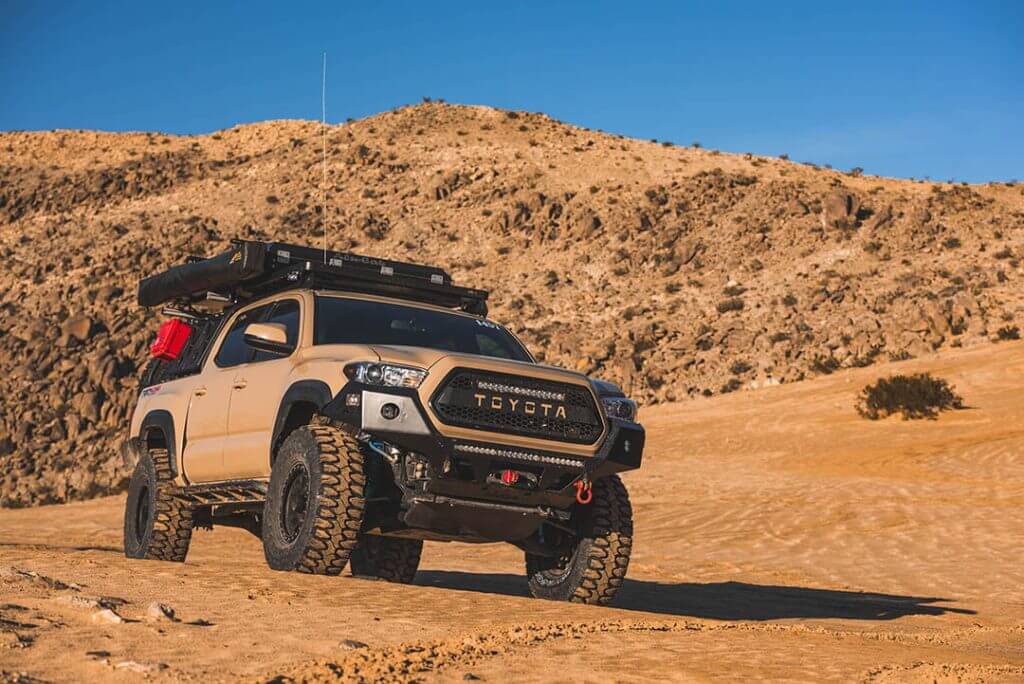
Tires: 35″ Milestar Patagonia M/Ts
It can be argued that this rapid expansion in tire sizes was brought about by the advent of a single vehicle: the 2007 Jeep Wrangler Unlimited (JK). It dropped the iconic Inline 6-Cylinder for a V-6 that was better suited to a minivan than a 4×4. The improved approach and departure angles showed enthusiasts that Jeep engineers were focused on making a capable vehicle.
But the one change that was seen as heresy initially and is now beloved: 4 full doors. Jeep aficionados scorned the longer Wrangler, thinking it more of a minivan than a true Jeep. But over time, the extra wheelbase lent itself to improved off-road capability, with the right modifications.
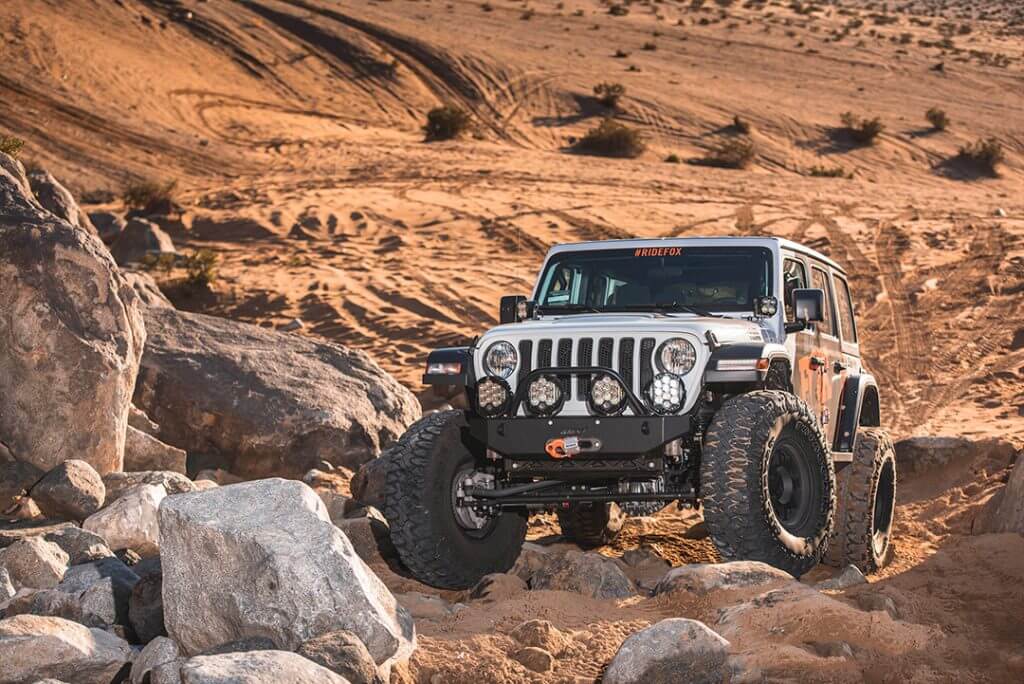
Tire: 40″ Milestar Patagonia M/Ts
Chief among them: Larger tires. Tires are the only thing that connects the vehicle to the ground. They are the easiest and quickest way to gain ground clearance, improve approach and departure angles, and provide that oh-so-desirable “tough” aesthetic that many enthusiasts are after. But there is a canyon in terms of budgets between running a 40 inch tire and the ubiquitous 37 inch tire.
“…But the one change that was seen as heresy initially and is now beloved: 4 full doors.“
40s are an average of 40-60% more expensive than their 37 inch tire counterparts, and a lot of expensive changes have to be made to the vehicle in order to reliably run a 40 INCH tire as well. So what does an owner do when they want more than their 37s, but can’t afford or justify the required upgrades for 40s? Enter the Milestar Patagonia 38 inch tire.
While the 38×13.50R17 is only one inch taller than its smaller sibling—the 37 inch, it pays off in ways that become greater than one would initially think. It poses less strain on the hard parts that turn and drive the tires when compared to 40 inch tires. The 38 inch tire size clears factory brackets and bumpers and keeps any sort of body modification to a minimum.
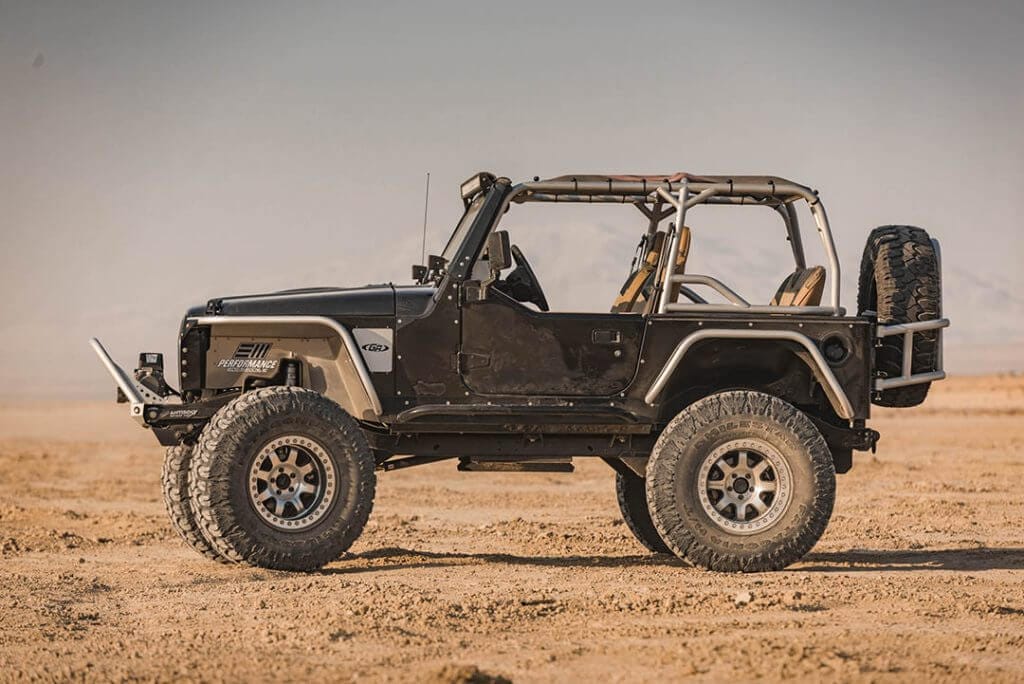
Tire: 37″ Milestar Patagonia M/Ts
Wheel offset, suspension bump stops, steering, and fenders all can stay the same if the vehicle has been properly kitted for 37’s. Where 37’s provide a better “stance”, the 38 inch tire make the vehicle look like it has 40s. All of this is gained with a reasonable bump in price on just the tires. Not only is the 38 inch Patagonia M/T taller, but it’s a bit wider at 13.50 inch giving the wheeler that much more of a footprint.
The tires’ C-Load Range is also a nod to the recreational wheelers as it is commonly thought that having some sidewall give, while still being 3-ply, will allow the tire to “grab traction” or “bite” when aired down. This is further supported when one takes into consideration that tire manufacturers often modify the construction material of the plys depending upon the load the tire is expected to bear and how much air pressure it is rated for.
“…the added capability of a 40-inch tire, without the 40-inch wallet.“
Strength is upheld with the Patagonia, while being a more focused 4×4 product. At 82 pounds, the 38 inch Patagonia M/T’s optimized construction is shown as it is the same lighter weight as many of it’s 37 inch competitors. This is important because added unsprung weight negatively affects suspension performance and ride quality.
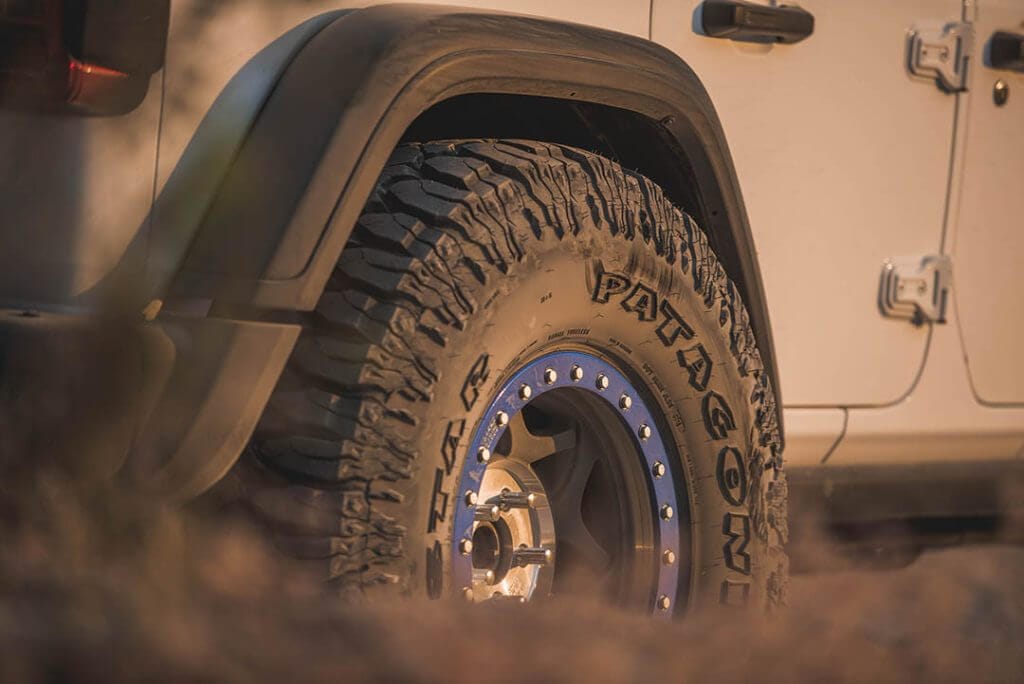
In addition, extra weight also brings down fuel economy and increases wear and tear on the drivetrain and steering components. The 38 inch Patagonia M/T is constructed to balance strength, size, and weight; all major factors when enthusiasts start their 4×4 project.
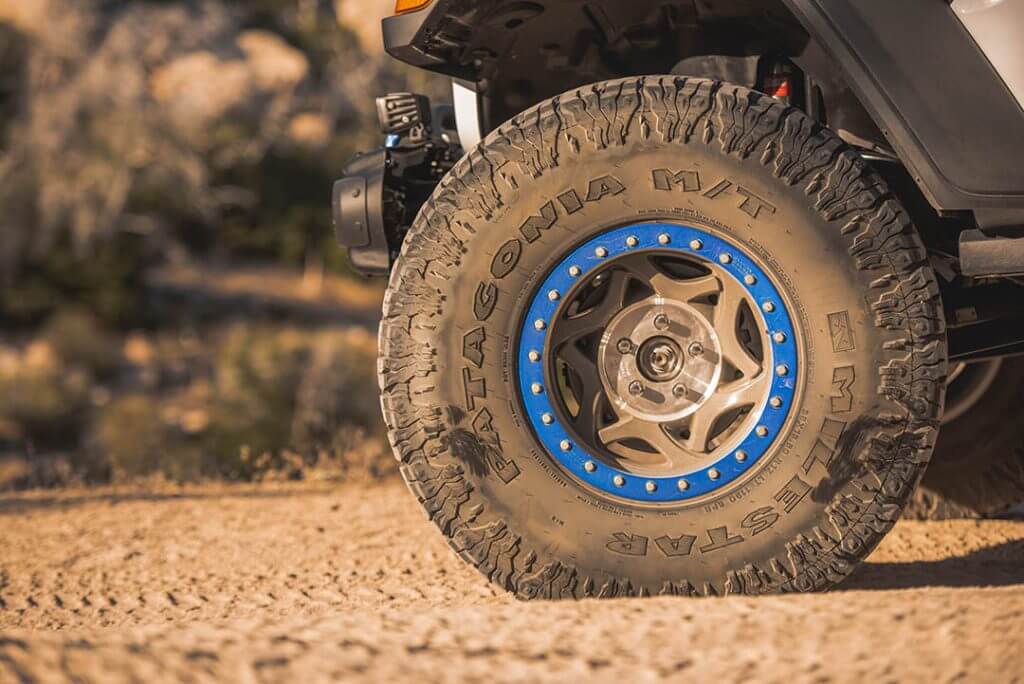
The 38 inch Milestar Patagonia M/T is the choice when one wants the added capability of a 40-inch tire, without the 40-inch wallet. It is tailor-made for the recreation wheeler with its strong, yet pliable sidewall, all-important 17″ wheel construction, and true 38 inch tire sizing. Your next question is simply where will you buy your set?

